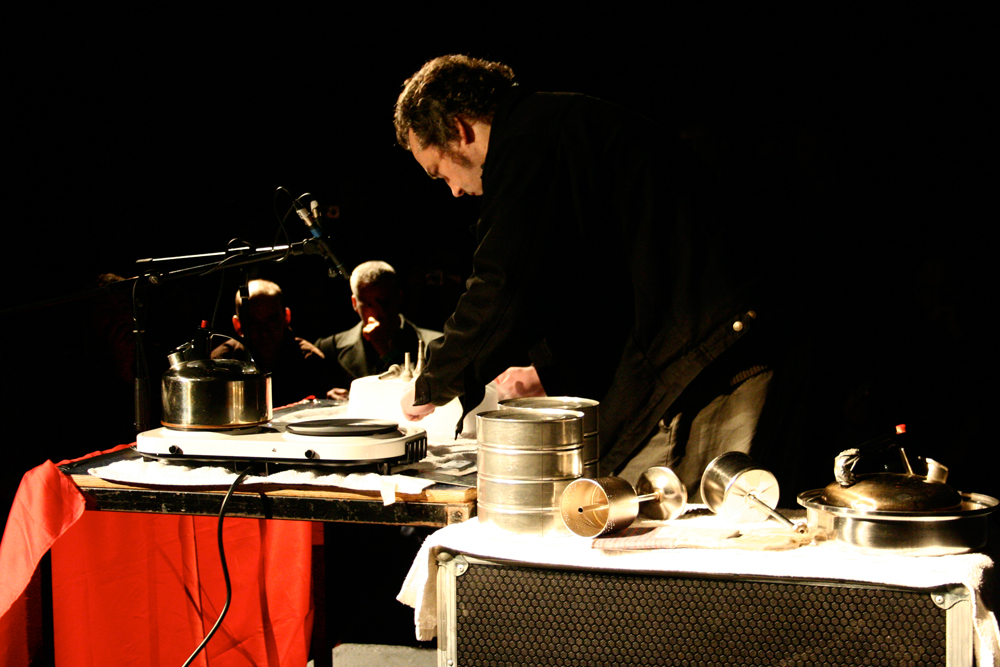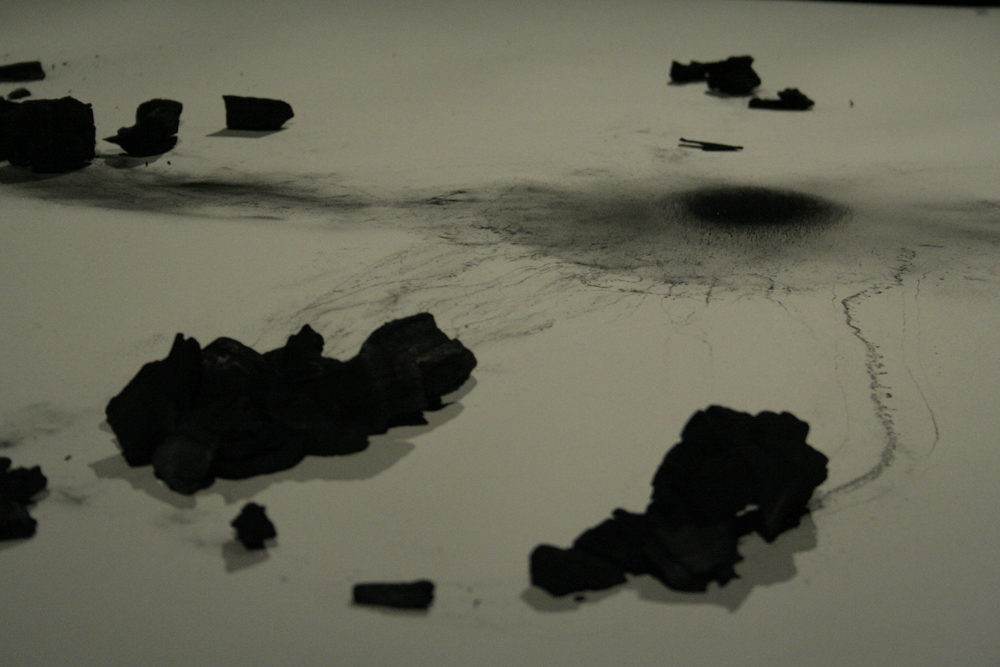
After…After…(Access)
Jordan Lord
A fully transcribed, described, and open-captioned film screening that’s nothing short of their actual open heart.
Arika have been creating events since 2001. The Archive is space to share the documentation of our work, over 600 events from the past 20 years. Browse the archive by event, artists and collections, explore using theme pairs, or use the index for a comprehensive overview.

A fully transcribed, described, and open-captioned film screening that’s nothing short of their actual open heart.

Michael Colligan pressing white hot metal into dry ice, causing the metal to sing and scream.

As part of Karrabing’s visit to Scotland, the collective will be hosted for three days in the Isle of Skye by The School of Plural Futures.

Julius’ “small music” features simple snatches of found sound, played back through small speakers, often set in bowls of pigment and dirt which shimmies in the vibrations.

Watching films and chatting with Karrabing members about those films: as they attend to the memory and practice of the ancestral present and the ancestral catastrophe that Karrabing and their more-than-human world find themselves facing.
Tiny fragments of sound recombined and woven into spare and precise, violent yet beautiful pieces

Black-clad with an ominous aura created by their distorted guitar epics, burnt-out ballads and raucous mantric jams.

A specially commissioned performance for organ. “The course of the stars were to be put to sound.”

A socio-poetic reading on wayward communities – The wayward create upheavals, incite tumult. They come and go as they please; they are fugitive; they are in open rebellion against society.

John Mullarkey sets in a wider context our understanding of Alain Badiou and Francois Laruelle, two of the most radical philosophers in Europe today.

Laser beam sine tones used to draw delicate, abstract patterns by vibrating charcoal, placed atop of a great strip of paper running through the gallery; beautiful, fragile sound-created autonomous drawing.

Haino exceeds expectation with a 4 hour solo performance on a collection of more than forty instruments from all over the world.